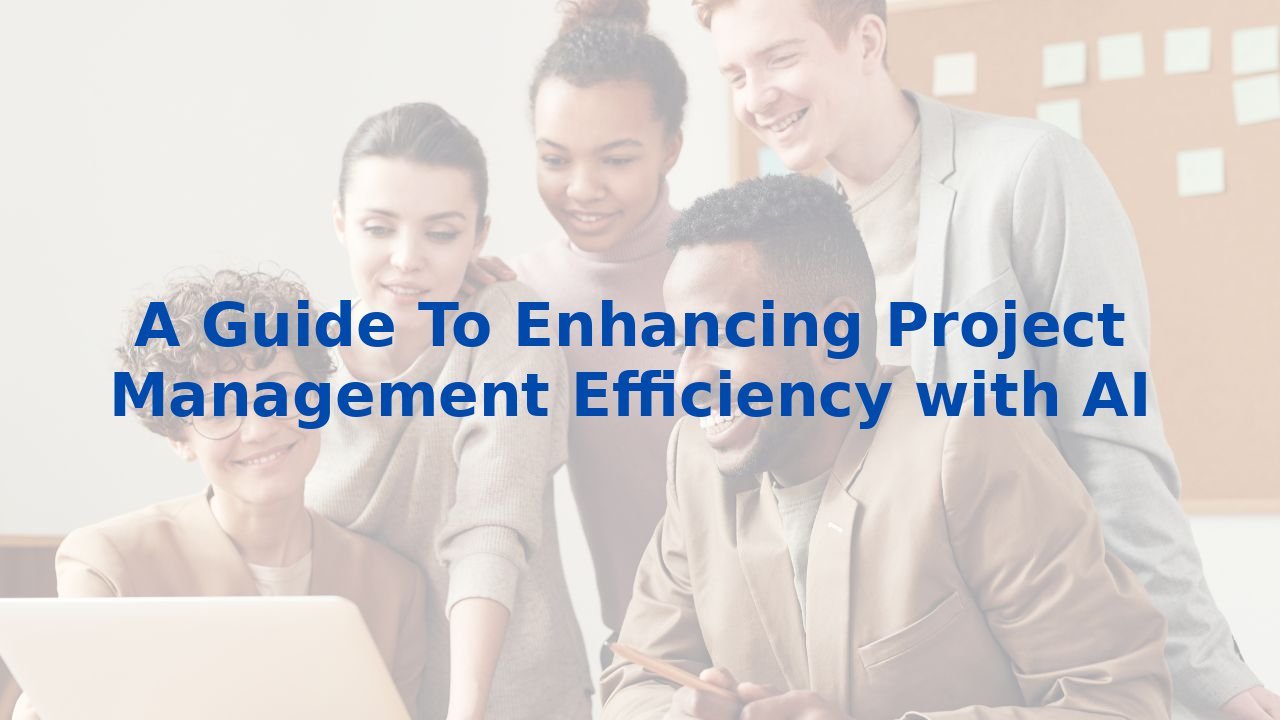A Guide To Enhancing Project Management Efficiency with AI
A Guide To Enhancing Project Management Efficiency with AI
Project management is the backbone of any successful organization, serving as the framework through which tasks are coordinated and executed to meet specific goals. Traditional methods often rely heavily on manual processes, leading to inefficiencies and increased chances for errors. Enter artificial intelligence (AI), a powerful ally that can transform how project management operates, making it not just more efficient but also more effective.
1. Automating Routine Tasks
Among the most significant benefits of AI in project management is its capacity to automate routine tasks. These can range from data entry to scheduling and progress tracking. By deploying AI-driven tools, organizations can streamline these vital yet mundane processes, freeing up human resources for more strategic activities. For example, AI can analyze project timelines and identify potential bottlenecks in advance, thus suggesting optimal resource allocation that ensures timely project completion.
2. Process Optimization
AI excels at optimizing project management processes by examining workflows to pinpoint inefficiencies and redundancies. This capability enables organizations to restructure their approaches for maximum productivity, which does not only lead to faster task completion but also contributes to a more economical operational framework—all essential factors in today's competitive business environment. Through continuous real-time analysis, organizations can become leaner and more responsive.
3. Improved Decision-Making
In a world where data reigns supreme, making decisions based on concrete data is critical. AI enhances decision-making by providing insights that are accurate and free from personal biases. For instance, the technology can handle vast datasets, drawing attention to trends and hidden patterns that might elude the human eye. As a result, project managers can make informed choices that are grounded in solid data, leading to far better outcomes.
4. Enhanced Quality Control
Maintaining quality standards is paramount, particularly in project management. AI can help by conducting real-time monitoring of project processes, identifying defects or irregularities early in the workflow. This proactive approach not only improves product quality but also helps organizations safeguard their reputation by ensuring that only the best work reaches customers.
5. Risk Management
The ability of AI to analyze complex relationships within massive datasets enriches an organization’s risk management strategies. By identifying potential risks and opportunities through rigorous analytical capabilities, businesses can preemptively address challenges and seize beneficial situations. This foresight empowers organizations, providing a competitive edge by allowing them to act swiftly and decisively.
6. Supply Chain Management
AI significantly enhances supply chain management through precise analysis of both historical and real-time data. By predicting demand fluctuations and optimizing inventory levels, organizations can ensure greater efficiency in shipping and product delivery. This level of adaptability minimizes delays and reduces carrying costs, cultivating a more streamlined supply chain process.
7. Employee Training and Productivity
Integrating AI into project management also revolutionizes employee training. AI-driven learning platforms adapt to individual learning styles, maximizing engagement and knowledge retention. When employees are well-versed in the capabilities that AI offers, such as data analysis and decision-making, their productivity surges. Real-time assistance from AI can suggest relevant resources, enabling employees to solve problems more efficiently.
8. Fraud Detection
Another compelling application of AI in project management is its capability in fraud detection. By analyzing transaction data and user behavior, AI can quickly identify anomalies, making it a vigilant guardian of a company’s assets and sensitive customer information. This precautionary measure not only protects the organization but also reinforces trust in its operational integrity.
The Benefits of Training Your Employees for AI
While implementing AI technologies is critical, organizations must not overlook the importance of training employees to collaborate effectively with these advancements. Training programs focused on equipping staff with skills for using AI tools are indispensable. Familiarizing employees with AI-driven analytics and process optimization ensures that they can harness the full potential of these technologies within their existing workflows.
Conclusion
Incorporating AI into project management is no longer a luxury; it’s a necessity. By automating mundane tasks, optimizing workflows, fostering data-driven decision-making, ensuring quality control, managing risks, and enhancing employee training, organizations can reap transformative benefits. With a commitment to embracing AI and investing in workforce readiness, businesses can unlock new levels of efficiency, agility, and innovation.
The future of project management is not merely about overseeing tasks; it’s about harnessing technology to propel growth and achieve remarkable success.



